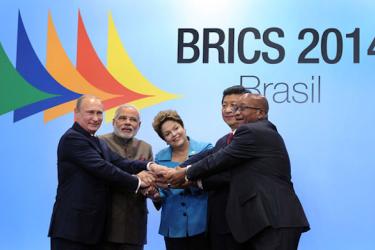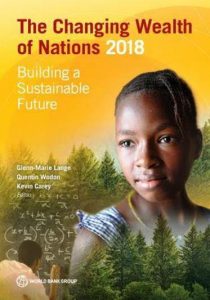World Bank
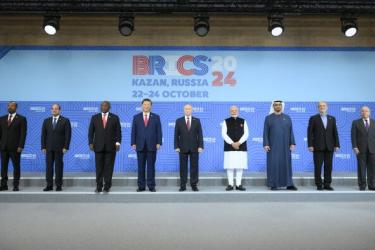
The BRICS are the new defenders of free trade, the WTO, the IMF and the World Bank
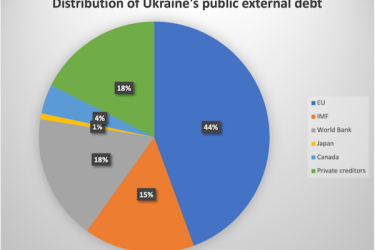
Ukraine’s debt: An instrument of pressure and spoliation in the hands of creditors
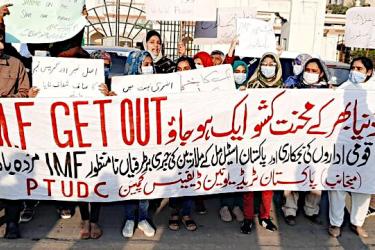
World Bank and IMF — Keeping Pakistan in shackles
South Africa: World Bank shrugs at inequality and corporate subsidies

ANC deputy president Cyril Ramaphos
Africa’s ‘rising’ or overdue uprising?

By Patrick Bond
January 1, 2013 – Links International Journal of Socialist Renewal
Either:
1) Africa owes its takeoff to a variety of accelerators, nearly all of them external and occurring in the past 10 years:
- billions of dollars in aid, especially to fight HIV/AIDS and malaria;
- tens of billions of dollars in foreign-debt cancellations;
- a concurrent interest in Africa’s natural resources, led by China; and
- the rapid spread of mobile phones, from a few million in 2000 to more than 750 million today.
Business increasingly dominates foreign interest in Africa. Investment first outpaced aid in 2006 and now doubles it.
Or:
BRICS bloc’s rising ‘sub-imperialism’: the latest threat to people and planet?

President Dilma Rousseff of Brazil, Russian President Dimitry Medvedev, India
Land grabbing: A new colonialism

A nascent oil palm plantation in southeastern Sierra Leone owed by Socfin Agriculture Company, which in March 2011 signed a 50-year lease with the government of Serra Leone. Photo by Felicity Thompson/IRIN.
By Alan Broughton
November 6, 2012 – Links International Journal of Socialist Renewal -- Since the global financial crisis of 2008 and its associated food crisis that sent another 200 million people into malnutrition, there has been a massive grab for land by large corporations around the world. Worst hit has been Africa, where food security is already non-existent for many people. Governments, including the Australian government, welcome this “investment” in agriculture, some bizarrely claiming that food security will be increased.
South Africa: Dying for growth -- World Bank's role in Marikana massacre mine, carbon pollution
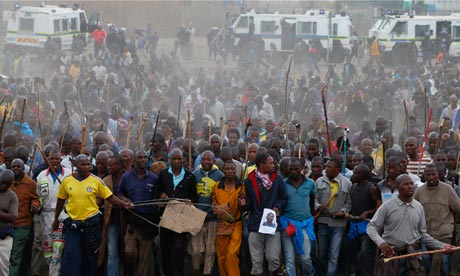
More than 3000 mineworkers take part in a march at Lonmin's Marikana mine in South Africa on September 5, 2012. Photograph by Mike Hutchings/REUTERS.
For more on the Marikana mine massacre, click HERE.
By Patrick Bond
September 5, 2012 -- Links International Journal of Socialist Renewal -- “One of the things you learn as an anthropologist, you don’t come in and change the culture”, Dartmouth College president Jim Yong Kim told wealthy alumni when contemplating the institution’s notorious hazing practices, prior to US President Barack Obama’s request last February that he move to the World Bank.
Kim’s Harvard doctorate and medical degree, his founding of the heroic NGO Partners in Health and his directorship of the World Health Organization’s AIDS division make him the best-educated, most humane World Bank president yet. A decade ago, he co-edited the book, Dying for Growth, pointing out that "Washington Consensus" policies and projects had a sharply adverse impact on health.
Afghanistan: Amnesty International lauds war and occupation as 'progress' for women
The bitter reality for Afghan women: an address by Malalai Joya.
By Tim Anderson
May 20, 2012 -- Stop the War Coalition, Sydney -- Amnesty International has muddied the waters over the occupation of Afghanistan with its latest campaign urging NATO to “keep the progress going” on women’s rights. The campaign was aimed at a NATO summit in Chicago and drew on one of the few remaining arguments for continued military occupation of that war-ravaged country.
The idea that a military occupation would somehow help Afghan women was promoted by Laura Bush, wife of the former US president who ordered the October 2001 invasion. It is an argument that been rejected by the Afghan women’s group, Revolutionary Association of the Women of Afghanistan (RAWA) and by activist and former Afghan MP Malalai Joya (see video above). They say that the NATO occupation has simply added a third enemy, on top of the Taliban and the NATO-backed warlords.
